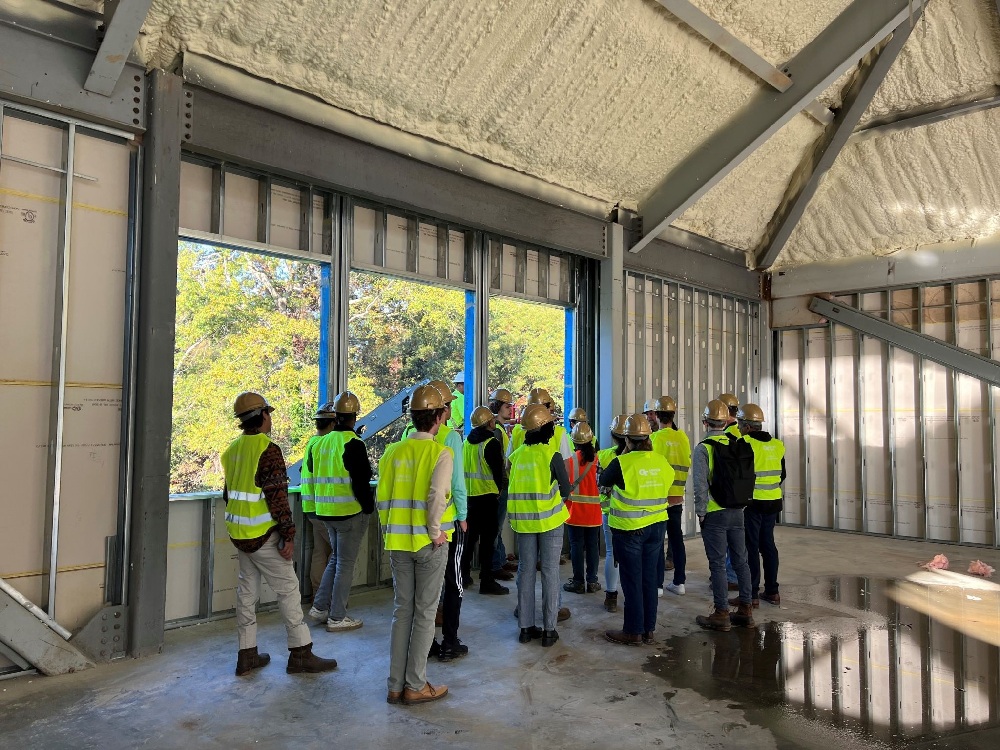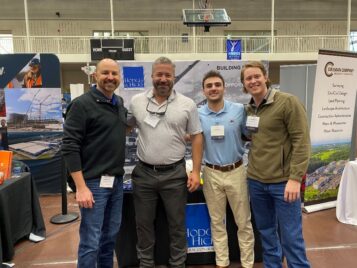
Investment of time = long-term engagement
By Jon Taylor
Every contractor struggles with attracting and retaining talent in a competitive market like this, especially considering the need for skilled labor that exists today. In response to the shortage, industry organizations are being formed to promote careers in construction.
In the meantime, contractors are placing a renewed emphasis on recruiting efforts, creating programs to support the training of new hires with little to no exposure to the industry. At the same time, they are trying to keep their existing employee base happy. As a result, every contractor is searching for an answer to the “War for Talent.” There are many strategies to consider – some easier, yet temporary. What remains true is that the most valuable commodity we all have to offer is our time.
Following are five meaningful commitments that contractors — and superintendents — can make to attract and retain talent.
1 Meet them where they are. Every recruit enters the field with a varying degree of knowledge. Some may begin work right out of high school or trade school, while others enter the field after college. From there, learning primarily happens through on-the-job training, which can also vary greatly. Set the tone that no question is a dumb question. Work to understand their baseline knowledge, so you know how and what to teach. Meeting them at their level means getting to know them. This investment of time ensures they are adequately trained, and demonstrates a more profound commitment to their future.
2 Provide a path. People want to work where they feel valued. Employees often want to know that they have a future with the company. One way to ensure alignment of the employee’s goals with company goals is to provide a clear career path. Scheduling regular check-ins — at least every six months after their hire date — spurs conversation and demonstrates a unique interest in their individual growth. Agreeing to and writing down goals and expectations while hosting regular checkpoints keeps the lines of communication open and creates a framework for progression. Giving employees something to aspire to get to the next level creates motivation versus complacency.
3 Promote mentorship at every level. Reinforce a company culture that promotes teaching and training instead of competition. When supported within the company’s top ranks, this atmosphere puts people first and creates trust and opportunity. When company events take place, plan and facilitate open discussions. Tenured employees should be willing to share failures and learn from one another while actively seeking opportunities to promote and train the next generation. We all should be a resource for information within our firms, which is born from keeping the lines of communication open.
4 Model behaviors you want to see exhibited. When company leaders make the same commitment to their jobs that they expect of others, this demonstrates mutual respect. The leaders set the standard. This standard is what they judge each other by and what recruits strive to be. It’s hard to expect from others what you don’t expect from yourself. So, if you’re overseeing a concrete pour, get out there, and get in the work. Help put the tools away at the end of the pour.
My mentor once told me, “Don’t be that guy!” You know the one, right? The one that says and never does. The one that expects and never inspects.
If you want your crew to be on time, be on time. If you want your crew to value relationships, value them. If you want them to go the extra mile, go the extra mile. It’s simple stuff, but it creates a new standard when done regularly and with a good attitude.
5 Hire quality people. In the NFL, some teams draft for a needed position, and some draft the best available player. Typically, teams drafting with the latter concept have a much better success rate. In construction recruiting, this theory has merit. Company leaders who develop intentional hiring practices and set standards for identifying new talent have better success finding candidates that stick with the company long term. In my experience, you can teach someone job-related skills — like how to navigate new software, how to use equipment or how to follow construction processes. Yet, teaching new behaviors and interpersonal skills is much more challenging. By considering other attributes like personal character, willingness to learn, overall mindset and work ethic (meaning hiring the best available candidate regardless of the position they will fill), you set your company up for better long-term engagement.
As you plan for your company’s next generation, there is no easy button. However, to achieve the deepest long-term engagement and retention, field leaders must invest meaningfully and intentionally into the future of their organization by offering what remains the most valuable commodity we have – our time.
Jon Taylor is a project executive of field operations at Hodges & Hicks General Contractors Inc. in Atlanta, Georgia.
Photo credits: Hodges & Hicks General Contractors Inc.



 Join our thriving community of 70,000+ superintendents and trade professionals on LinkedIn!
Join our thriving community of 70,000+ superintendents and trade professionals on LinkedIn! Search our job board for your next opportunity, or post an opening within your company.
Search our job board for your next opportunity, or post an opening within your company. Subscribe to our monthly
Construction Superintendent eNewsletter and stay current.
Subscribe to our monthly
Construction Superintendent eNewsletter and stay current.